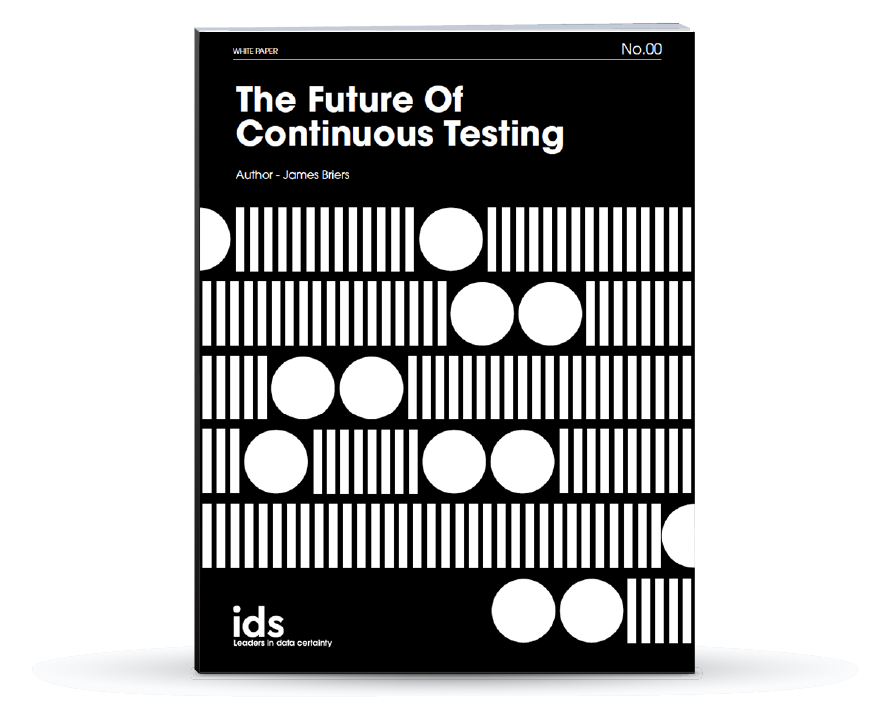The Top 10 Must-Have Roles for Data Certainty and Analytics

It has been said many times by me and many others that as businesses embrace digital transformation (or digitalization as it is now becoming more widely known) as a core strategy, taking advantage of new technologies and software to streamline operations and stay competitive, there is an urgent requirement to ensure that the organisation has all the right skills and competencies needed to take full advantage of the significant investment that is inevitably involved. It is also now widely accepted that, ultimately, digital businesses are destined to fail unless they take quality data management seriously and recognizing the value of their data across all areas of the operation.
This means not just building a data-driven culture backed by the necessary resources but also having the right people in key roles who are data literate and skilled data analysts.
A Gartner CEO survey[1] listed Talent Management as “the number one organizational competency to be developed or improved” and concluded that “data centric decision-making is a key culture and capability change in a management system that hopes to thrive in the digital age. Executive leaders must be a role model to encourage and foster data centricity and data literacy in their business units and the organization as a whole,”
For many businesses this can mean taking a deep look at their organizational structure and identifying knowledge gaps in order to create the new data and analytics based roles needed to future proof their businesses. To help companies through the recruitment process Gartner have also produced a list[2] of roles they see as the “must-haves” for any data-driven organization.
- Chief Data Officer
The Chief Data Officer, or CDO, as the title suggests this is a senior executive role with responsibility for the data quality management of the business. This includes developing the strategies needed to ensure that data is fit for purpose and available to enable informed decision making at all stages of the data journey.
- Data & Analytics Manager
The Data & Analytics manager is responsible for managing the data & analytics center and for its delivery throughout the entire organization. A key contributor to the strategy and vision for the data & analytics department along with the CDO they would have major responsibility for managing the budget and resource planning as well as tracking the effectiveness of data analytics in terms of the business objectives.
- Data Architect
The Data Architect, or Information Architect, owns the data models and understands the impact various data analytics scenarios on the overall IT architecture working closely with the senior business managers and stakeholders.
- Analysts
There are various types of analysts with roles depending on the type of organization and skills requirements. They typically work closely with domain experts to support specific business areas, processes, or functions.
- Project Manager
As the title suggests the project manager is responsible for the successful implementation of all projects in the enterprise portfolio. They plan, execute and deliver projects in accordance with business priorities. They act as the primary point of contact for all projects.
- Data Engineer
A Data Engineer works across all business units as well as closely with the IT team. The primary role being to manage all aspects of storing and consolidating data from all parts of the organisation to ensure 100% certainty in the quality and availability of data for users, as and when needed.
- Data Steward
Data stewards are the data gate keepers for the enterprise. They provide the metadata needed to structure the information that is used to describe datasets.
- Data Scientists
A data scientist is responsible for modeling business processes and discovering insights using statistical algorithms and visualization techniques. They contribute to building and developing the enterprise’s data infrastructure and support senior management through insights and analysis to enable better decision making.
- Citizen Data Scientist
Strictly speaking “Citizen Data Scientist” is not an actual job title. They are power users with particular skills and interests in data science and/or machine learning that can execute a variety of data science tasks, supported by augmented analytics tools for data discovery, data preparation, and model deployment.
- AI / ML Developer
Artificial intelligence / Machine learning is an increasingly important skill set for any organization. TAI/ML Developers are able to embed, integrate and deploy AI models that are developed by themselves or other data scientists.
IDS can help bridge the Skills Gaps
Clearly the list is made up of highly specialised and difficult to fill roles and it is highly unlikely that any business other than a major enterprise would be able to assemble or grow their own team of in-house experts overnight. For the majority of businesses a hybrid approach that brings in external expertise to fill in specific gaps could provide a cost effective solution. IDS’s data specialists work with many major enterprises to take on some of the responsibilities outlined by Gartner to help deliver digitalization projects as well as provide training programmes to enable companies retrain and upskill internal teams.
[1] https://www.gartner.com/en/newsroom/press-releases/2019-05-08-gartner-survey-reveals-that-ceo-priorities-are-slowly

Learn how continuous testing can improve your business
IDS' Chief Technical Officer, James Briers, sheds light on the solutions to approaching complex data testing projects with mechanical efficiency.


